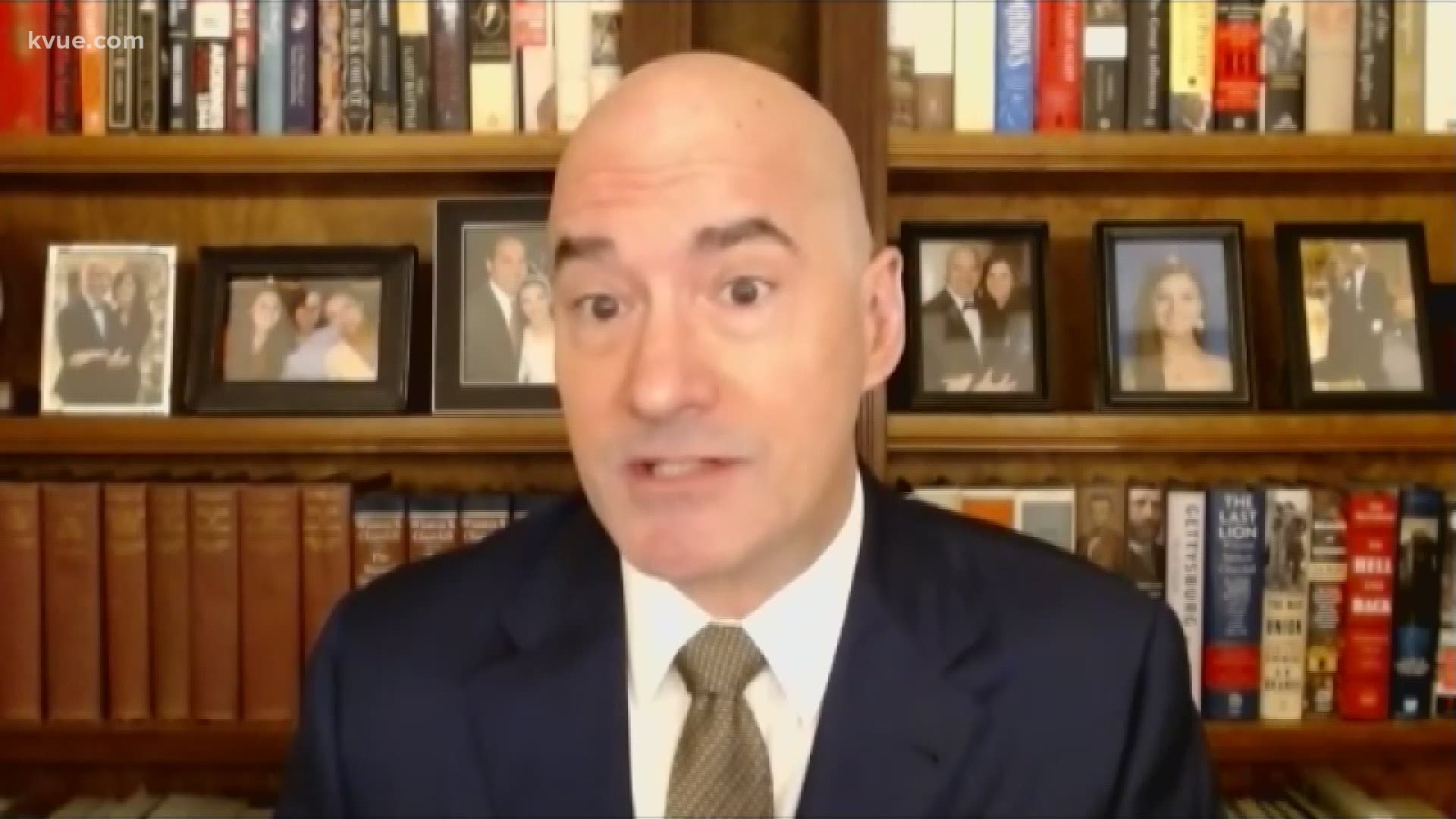AUSTIN, Texas — Starting Monday, all adults in Texas will be eligible to get the COVID-19 vaccine. And once more people are vaccinated, more jobs will be filled.
So, can employers require employees to get vaccinated?
KVUE'S Daranesha Herron interviewed Texas lawyer Quentin Brogdon to get the answer. Brogdon has been practicing law for more than 30 years and also co-founded CBR Law in Dallas.
Question: Will employers be able to require their employees to get the COVID-19 vaccine?
Brogdon: "During this once in a 100-year pandemic, employers are being given lots of powers to infringe on the rights of their employees that they didn't have before. We can only hope that once this pandemic passes, those powers will be taken back. It's hard once they're given to an employer to get them back, many times.
But to cut to the question you've asked me, yes, it appears, based on some guidance from the EEOC, the Federal Equal Employment Opportunity Commission, that employers can require their employees to be vaccinated against COVID, particularly in high-risk occupations – if the employees work in a hospital or nursing home, for example. But even in a white-collar job where the employee isn't necessarily coming into contact with the public, it appears based on that federal guidance that an employer can require, if they choose, to have an employee be vaccinated against COVID."
Question: Are there any exceptions?
Brogdon: "There are, fortunately, exceptions under the federal law if the employee has a sincerely held religious belief that prevents them from getting vaccinated or the employee has a disability under the Americans With Disabilities Act that would make the employee more susceptible to an adverse side effect from the vaccine. Then the employer has a duty under federal law to make reasonable accommodations for the employee. That might include, for example, allowing the employee to work from home – telecommute, in essence, what we used to call it. Now it's becoming more the norm for many employees, accommodations of the employee to work around the disability or the sincerely held religious [belief]."
Question: Can employers require their employees to get tested for COVID-19?
Brogdon: "Yes. One of the issues you look at legally in these types of analyses is whether a vaccination, for instance, is a medical examination and those are prohibited except under very limited circumstances.
The EEOC sent guidance a couple of months ago, was that a vaccination for COVID is not a medical examination. Therefore, most lawyers read that to mean that it can be required. A test for COVID clearly is a medical examination, and the EEOC has conceded that. But they've, in essence, based on their guidance, made an exception for COVID."
Question: Right now there's not enough vaccine for everyone, but have you heard or seen more CEOs or employers starting to say that later on in the future – maybe in the summer, maybe next year – that they will start to require people to have that COVID-19 vaccine?
Brogdon: "Based on the reporting I've seen and from what I've heard from other lawyers and not only in the media, it appears that most employers, even in high-risk occupations, are not mandating the COVID vaccine.
As more and more people get vaccinated, as the fear factor subsides, as we learn hopefully that the side effects are minimal and [it] is only a very small percentage of the population that experiences those side effects, my prediction is you'll see more employers tending and leaning towards requiring it or at least incentivizing it.
Amazon, for example, was paying employees. It was a minimum amount, but some amount once they were vaccinated. So, I think it's always better as an employer if you can incentivize your employees rather than flatly mandating it. Some employees are going to resist the vaccine either because they just don't want to do it or they're scared of it or they're worried about side effects or maybe they have a sincerely held religious belief."
PEOPLE ARE ALSO READING:

